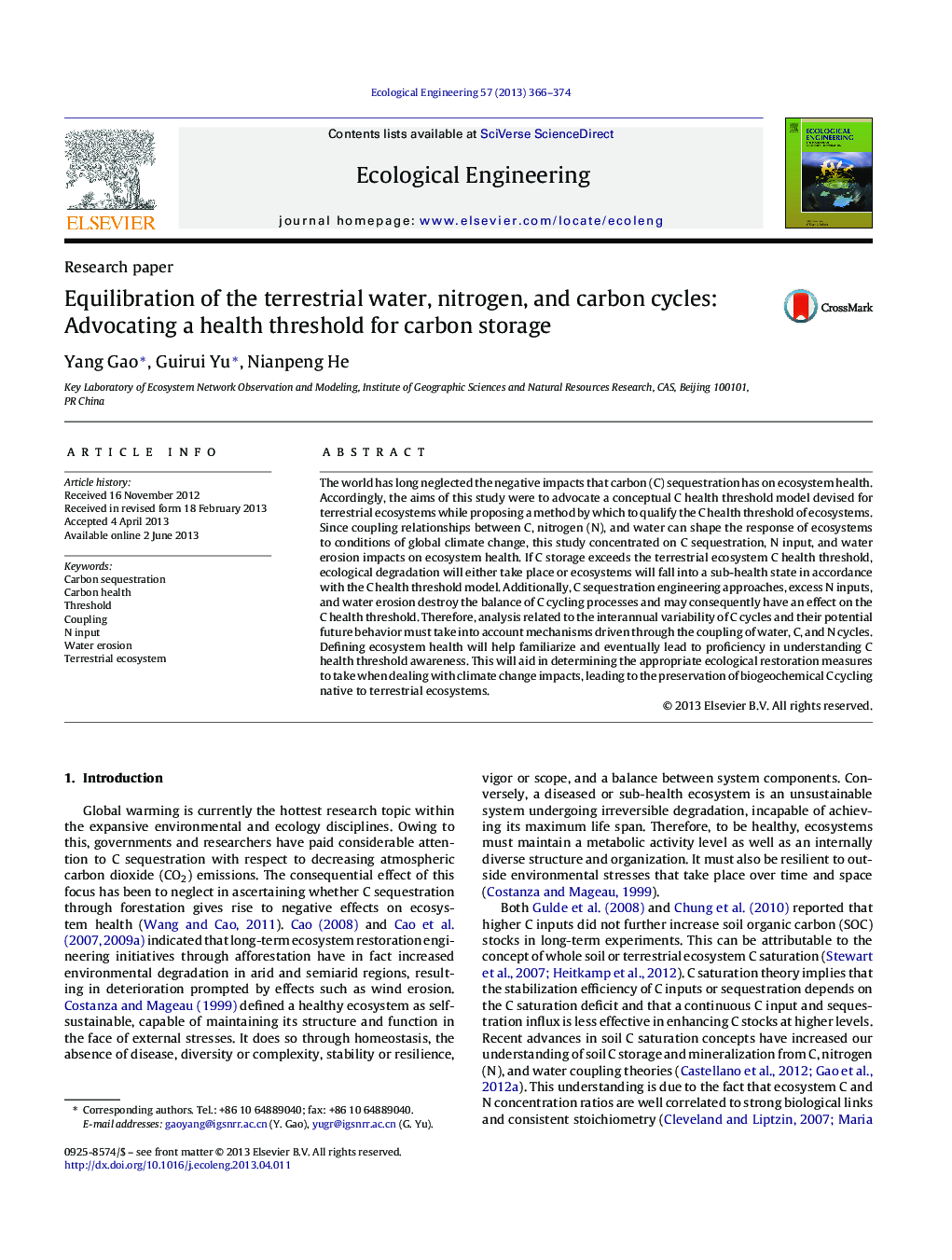| Article ID | Journal | Published Year | Pages | File Type |
|---|---|---|---|---|
| 6302641 | Ecological Engineering | 2013 | 9 Pages |
The world has long neglected the negative impacts that carbon (C) sequestration has on ecosystem health. Accordingly, the aims of this study were to advocate a conceptual C health threshold model devised for terrestrial ecosystems while proposing a method by which to qualify the C health threshold of ecosystems. Since coupling relationships between C, nitrogen (N), and water can shape the response of ecosystems to conditions of global climate change, this study concentrated on C sequestration, N input, and water erosion impacts on ecosystem health. If C storage exceeds the terrestrial ecosystem C health threshold, ecological degradation will either take place or ecosystems will fall into a sub-health state in accordance with the C health threshold model. Additionally, C sequestration engineering approaches, excess N inputs, and water erosion destroy the balance of C cycling processes and may consequently have an effect on the C health threshold. Therefore, analysis related to the interannual variability of C cycles and their potential future behavior must take into account mechanisms driven through the coupling of water, C, and N cycles. Defining ecosystem health will help familiarize and eventually lead to proficiency in understanding C health threshold awareness. This will aid in determining the appropriate ecological restoration measures to take when dealing with climate change impacts, leading to the preservation of biogeochemical C cycling native to terrestrial ecosystems.
